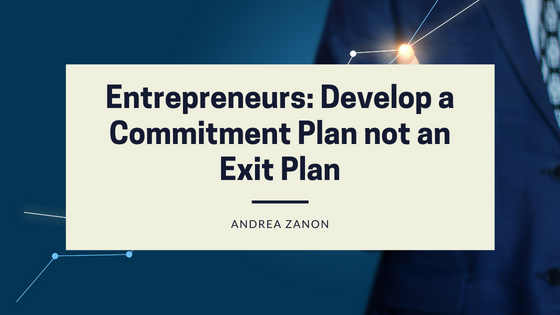Entrepreneurs are typically advised to develop an exit strategy before going into business because the choice of exit plan has a significant influence on business growth. An exit strategy also seems to make your business more attractive to investors and partners. While we should always be prepared for exits, I am going to argue that if you are launching a new venture you need to focus on making the decisions that commit your company to be a long-term player. I am saying this because planning for an exit even before launching your company is a distraction and a compromise that will slow your business as opposed to growing it. To quote the great author of Re-Work “Would you meet with a divorce lawyer the morning of your wedding?” You get the point, right?
As I keep saying, Success Belongs to those that show up! What I mean by this, is that people that take responsibility for their decisions, and stay committed to their long term plan outperform others that are more focused on exiting their companies and cashing out. At the end of the day, 80% of your success depends on your ability to show up, and stay committed to the long term plan. Additionally, if you are committed to long term value growth, it is easier to show up.
While exit strategy planning is very common, particularly in the Silicon Valley business environment, successful exits are very rare, and they force you (as an early-stage starter) to focus energy and limited capital to the wrong activities and efforts. Staying committed to the long-term plan will pay off more both in terms of ROI and impacts.
Partnering up instead of flipping your business
We are living through a unique time rich in market volatility, fear, and negative outlooks. Instead of flipping your business, think of strategic partnership. This is a time to capitalize on new partnerships to align your business with the societal and business changes that are occurring. This is a time to join forces with companies and teams that can compliment you to better deliver your product and service. During times of crises and uncertainty, joining forces with other companies, including your competitors can help end users address their daily challenges. Your role as a market leader and a committed CEO in this market is to make things easier for customers and help them move forward.
If you can show customer, you are a long term player, you will get loyal consumers. Time to capitalize on this commitment.
